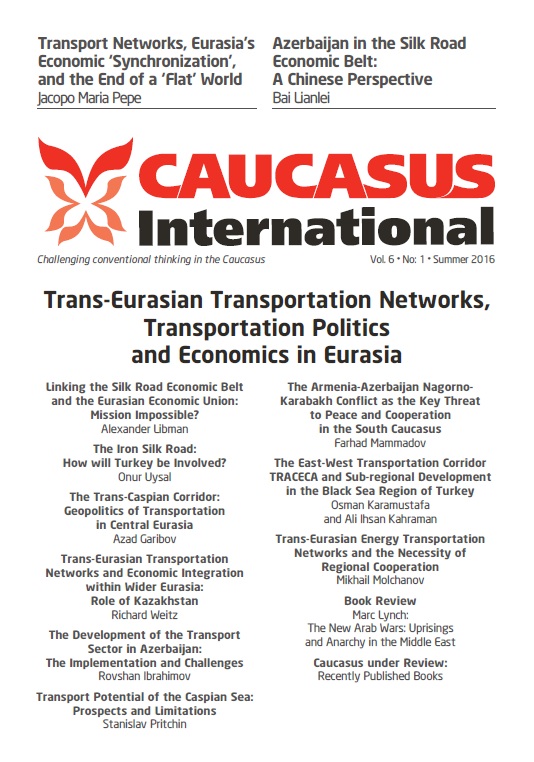Transport Networks, Eurasia’s Economic ‘Synchronization’, and the End of a ‘Flat’ World
The emergence of an interconnected Eurasian transport network is the most relevant – if equally challenging - development of the second decade of the 21st century. However, the current acceleration of the infrastructure re-connection of wider Eurasia dates back earlier than the initiatives such as the OBOR, the EEU or the AIIB. Indeed, its political-economic rationality is rooted in the massive geo-economic shift since the early 2000s. Using macro data on trade flows in Eurasia covering the decade 2000-2012, the author argues that far from being ‘flat’, the world economy is increasingly fragmented and de-synchronized, while economic and commercial reaggregation is still taking place at more continental and regional level. Accordingly, continental Eurasia and the Indian Ocean-Asia-Pacific Ocean nexus are emerging as a self-sustaining geo-economic space, despite the geopolitical fragmentation and potential for political-military conflicts or economic crisis. The present economic downturn across Eurasia notwithstanding, in the coming decades the development of a functioning transport network remains the true impetus for overcoming the current domestic economic difficulties in many Eurasian economies, and sustainably re-shaping the economic, industrial and commercial face of the continent.
Latest news
- 03/17/2020 Call for Submission: “Non-Alignment Movement and Its Perspective in International Affairs”. Deadline: 1 July 2020 2623 views
Popular articles
- 02/24/2020 The Role of Irredentism in Russia’s Foreign Policy 2535 views
- 02/24/2020 Construction of sub-national identity vis-à-vis parent state: Gagauz case in Moldova 2216 views
- 02/24/2020 The Conflict in Ukraine - The Geopolitics of Separatism and Divergent Identities (Commentary) 2071 views
- 02/24/2020 The Role of the Soviet Past in Contemporary Georgia 2044 views





